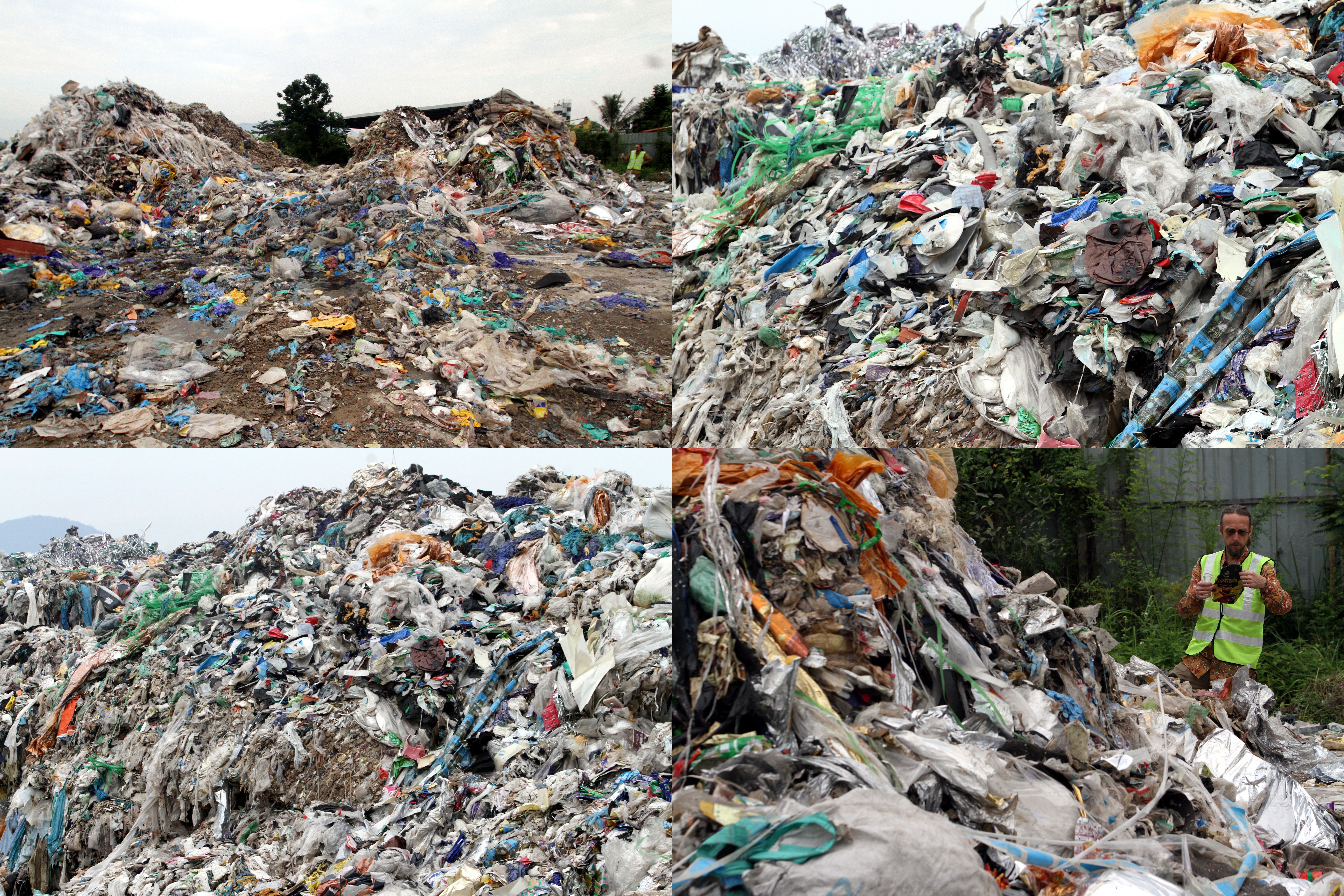
Published by The Star, image from The Star.
I confess, when I initially read about the clampdown on illegal plastic recycling centres, I thought to myself: surely the more people out there recycling the better?
This of course stemmed from ignorance. The more I read about how Malaysia is handling plastic recycling, the clearer the irony was of how illegal recycling was harming rather than helping the environment.
The fact is that the massive amounts of plastic now being imported into Malaysia is being handled in the quickest and dirtiest way possible to turn a quick buck.
The methods used are thus in fact extremely harmful to the environment, in terms of burning plastic fumes, increased landfills, and the poisoning of soil and groundwater – especially when the massive scale involved is taken into account.
According to Reuters, “Malaysia’s imports of plastic waste from its 10 biggest source-countries jumped to 456,000 tonnes between January and July, versus 316,600 tonnes purchased in all of 2017 and 168,500 tonnes in 2016.”
This means in half a year, Malaysia has already imported almost as much plastic as it did in 2016 and 2017 combined.
It appears Malaysia is becoming the prime dumping ground for some of the world’s most industrialised nations.
“The United States, the world’s top exporter of plastic waste, sent 178,238 tonnes of such waste to Malaysia between January and July, nearly twice as much as it sent to second top destination, Thailand, according to the United Nations’ trade database and the Institute of Scrap Recycling Industries.
“Britain, another big plastic waste exporter, sends a quarter of its waste to Malaysia, also more than any other country.”
60 Minutes Australia also recently published a damning video expose of where Australia’s plastic that is meant for recycling actually ends up.
No surprise, the answer was: polluting the environment in Malaysia.
The opening of this video was particularly hard-hitting, when it talked about how all our efforts to separate our trash and ensure that we recycle appear not only to be for naught, but could actually be causing even more environmental damage than simply throwing the plastic away.
This means that Malaysia is aiding and abetting in a severe betrayal of trust.
Everyone – both in Malaysia and abroad – who takes the extra time and effort to do what they believe is their part for the environment is making an investment of sorts, and ethically speaking, allowing these plastics to cause even more damage is akin to a criminal breach of trust.
The fact that Malaysia is importing massive amounts of used plastic is not in and of itself a bad thing.
Energy, Science, Technology, Environment and Climate Change Minister Yeo Bee Yin was quoted as saying that it could be a RM3.5bil industry in Malaysia.
There is a need to avoid the occasional Malaysian tendency to always think in the short term and how to bend the rules in order to make a quick and dirty profit – the “dirty” here being especially relevant.
In turn, the government needs to fill the vacuum in which these illegal plastic recyclers are operating.
Malaysians are notoriously “brilliant” at seizing opportunities and filling gaps in the market.
The government would do well to make sure these gaps do not exist in the first place.
Indeed, given the massive potential – not to mention our moral obligations to environmental preservation – the government is well placed to play a leading role and spearhead the establishment of an ethical, sustainable plastic recycling industry.
The hallmark of this industry must of course first and foremost be appropriate environmental impact. The process must beyond a shadow of doubt have an overwhelmingly positive nett effect on the environment – whatever it takes, to quote today’s most popular movie.
“Whatever it takes” in this case generally means the investment of a lot of money and resources into ensuring the proper infrastructure, the use of the best possible technology, and a firm commitment to clamping down hard on any hanky panky whatsoever.
Entrepreneurs are understandably not crazy about these big upfront, short-term costs, but governments are elected to ensure the long-term interests of the nation are prioritised.
Ponying up the appropriate amount of cash and resources at this critical juncture can propel Malaysia into becoming a leading global player in the ethical recycling of plastics.
The long-term benefits will be environmental preservation, economic prosperity, and a sterling global reputation.
The only question that remains is: is Malaysia willing to invest what it needs to today, in order to achieve this tomorrow?
Nathaniel Tan is Director of Media & Communications at EMIR Research, an independent think-tank focused on strategic policy recommendations based upon rigorous research.

